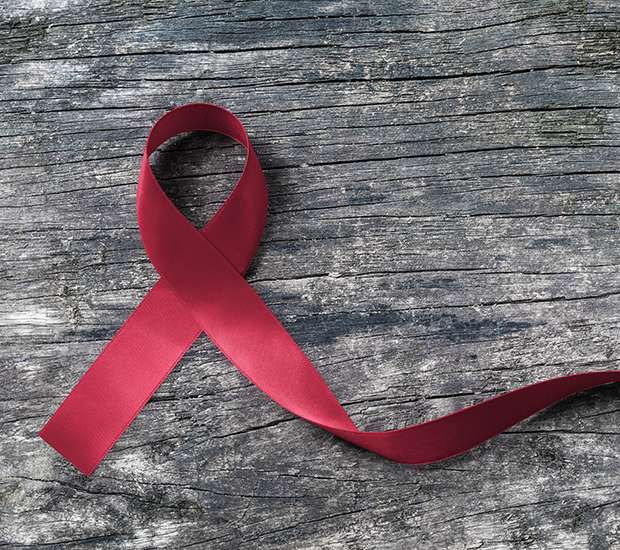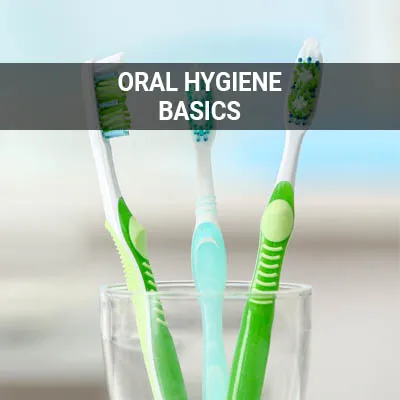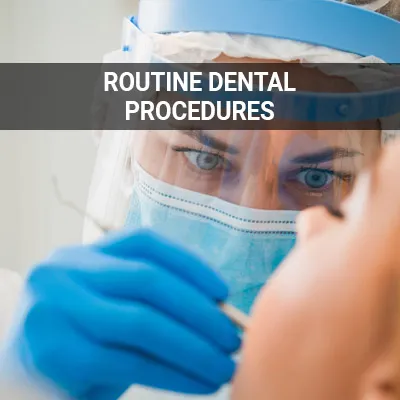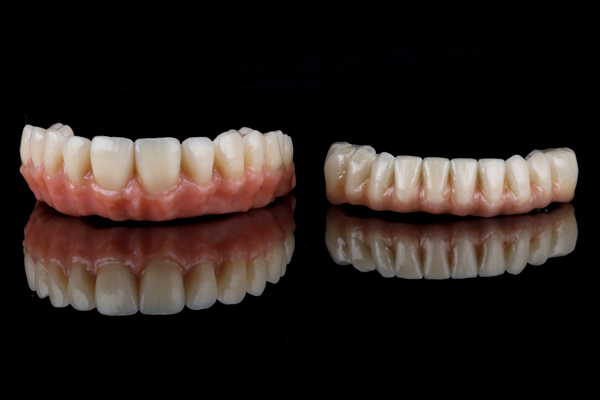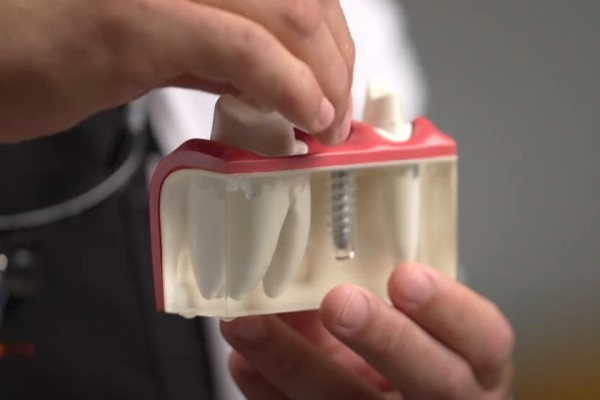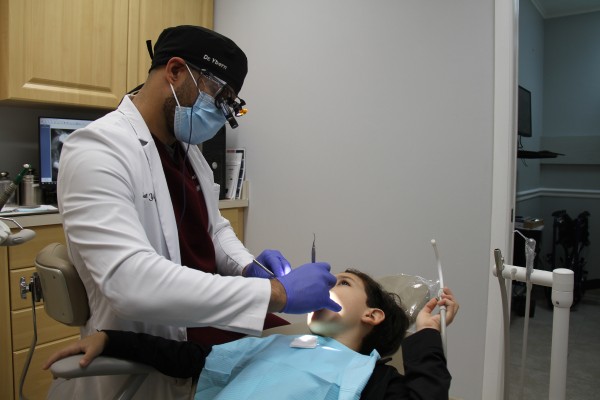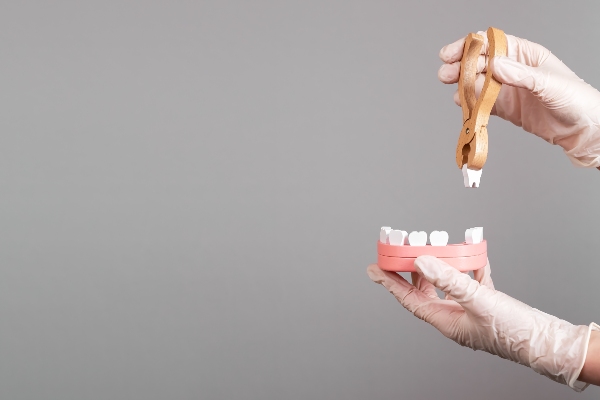Oral Cancer Screening Fort Pierce, FL
Oral cancer screenings can identify the signs of disease before it has spread. This may be beneficial to those in high-risk groups. Regular oral cancer screenings can give patients the advantage of treating cancer in the early stages when there is a higher chance for remission.
Oral cancer screenings are available at Fort Pierce Smiles in Fort Pierce and the surrounding area. Early detection may make cancer treatment more effective. Call us at (772) 232-7073 to schedule an appointment today.
Why Have Regular Oral Cancer Screenings?
Regular oral cancer screenings can be as important as regular dental checkups. Fortunately, patients can ask to get both procedures done at the same time. As per the National Cancer Institute, oral cancer symptoms tend not to appear until the disease has spread. Early detection may make oral cancer easier to treat when the chances for remission are higher.
According to WebMD, everyone should have a dental checkup at least once a year. However, experts have yet to reach a consensus on how often patients should go in for an oral cancer screening. A dentist may be able to conduct a comprehensive exam to determine how frequently a patient should have screenings.
“Early detection may make oral cancer easier to treat when the chances for remission are higher.”
Groups at High Risk for Oral Cancer
Certain groups may benefit from regular oral cancer screenings more than others. Common risk factors include but are not limited to:
- A history of oral cancer
- Certain types of human papillomavirus (HPV)
- Regular consumption of a lot of alcohol
- Excessive amounts of time spent in the sun
- Tobacco use, in any form
Patients may find it beneficial to consult a professional about their medical history to better determine their risk for oral cancer.
“Some groups may benefit from regular oral cancer screenings more than others.”
Limitations of Oral Cancer Screenings
Although regular oral cancer screenings are integral to maintaining good health, Mayo Clinic points out that it may be difficult to detect abnormal cells through a simple visual exam. Thus, there is always a possibility that a small sign of cancer or precancerous lesion could go undetected.
A group of unusual cells does not always mean that the patient has cancer. Rather, the patient will have to undergo a biopsy to get a definitive answer. If it is cancerous, then early detection will afford the patient more treatment options.
While the evidence does not yet link screenings with reduced oral cancer deaths, regular screenings may help identify cancers early at a time when remission is more likely.
“While the evidence does not yet link screenings with reduced oral cancer deaths, regular screenings may help identify cancers early at a time when remission is more likely.”
Check out what others are saying about our dental services on Yelp: Oral Cancer Screening in Fort Pierce, FL
What to Expect During an Oral Cancer Screening
Oral cancer screening requires no special preparation, and patients can typically expect screening to take place during a routine dental appointment. In most cases, a basic oral cancer screening will consist of the dentist taking a thorough look at all the parts of the patient's mouth, including:
- The back of the throat
- The gums
- The insides of the cheeks
- The outside and the inside of the lips
- The roof of the mouth
- The tongue
Patients with dentures must remove the devices to allow Fort Pierce Smiles to check the tissue underneath, along with the area underneath the jaw.
All in all, the screening should take less than five minutes.
“There is no special preparation required for an oral cancer screening, and patients can typically expect screening to take place during a routine dental appointment.”
Questions Answered on This Page
Q. How frequently should I get an oral cancer screening?
Q. Am I at high risk for developing oral cancer?
Q. What are the limits of oral cancer screenings?
Q. What can I expect during my oral cancer screening?
Q. What happens after an oral cancer screening?
People Also Ask
Q. What should be included in an at home oral health routine?
Q. What is gum disease and what causes it?
What Happens After an Oral Cancer Screening?
After the dentist evaluates the mouth and surrounding structures for signs of oral cancer, the patient will be able to continue with their daily routine as usual, without restrictions. The dentist will discuss any potential areas of concern and may ask that the patient return to the office in a few weeks for a re-evaluation, to see if the areas have changed or resolved. The dentist will not be able to tell for sure if an area of focus is cancerous, so more tests may be needed. If the patient has been scheduled for a biopsy, that patient will receive further instructions about how to prepare.
“The dentist will discuss any potential areas of concern and may ask that the patient return to the office in a few weeks for a reevaluation, to see if the areas have changed or resolved.”
Frequently Asked Questions
Q. How common is oral cancer?
A. According to the American Dental Association, more than 50,000 people in the U.S. are diagnosed with oral cancer every year. While this is intimidating, you can lower your risk of developing oral cancer by avoiding tobacco and alcohol. It is also wise to stay on top of oral health by following a regular check-up schedule.
Q. How much does drinking influence oral cancer?
A. The American Cancer Society notes that people who drink heavily are more likely to develop oral cancers than those with light or no alcohol intake. People who pair heavy drinking with heavy tobacco smoking increase their risk even further. The people who combine these activities have a risk of oral cancer that is 30 times higher than those who abstain from alcohol and tobacco.
Q. How can I prevent oral cancers?
A. The most important thing you can do to prevent the development of oral cancer is to avoid using tobacco products. Limiting your alcohol intake can also reduce your risk. Because of the association between oral cancers and HPV, it is also recommended that preteens get two doses of the HPV vaccine, as this could prevent oral cancers.
Q. What is a biopsy?
A. If the dentist identifies a suspicious area in the mouth during oral cancer screening, he or she may recommend a biopsy. A biopsy is a procedure that removes a small piece of tissue so that it can be examined more closely, by a pathologist. This may be done using several different methods, including a needle, a scalpel, or a specialized tool. Some dentists perform their own biopsies, and others coordinate with other types of healthcare professionals, such as otolaryngologists.
Q. Who is most at risk of developing oral cancer?
A. Besides those who drink heavily and use tobacco, those with certain strains of the human papillomavirus (HPV) tend to develop it at higher rates. Also, men develop it at higher rates than women. Those with poor nutrition or who are overweight, are also at higher risk.
Dental Terminology
Learn More Today
Regular oral cancer screenings may help stop the disease before it has the chance to spread. At Fort Pierce Smiles, we can help figure out the best preventative care plan for you. Call us at 772-232-7073 to schedule an appointment today.
Helpful Related Links
- American Dental Association (ADA). Glossary of Dental Clinical Terms. 2024
- American Academy of Cosmetic Dentistry® (AACD). Home Page. 2024
- WebMD. WebMD’s Oral Care Guide. 2024
About our business and website security
- Fort Pierce Smiles was established in 2023.
- We accept the following payment methods: American Express, Cash, Check, Discover, MasterCard, Visa, Care Credit, Sun Bit, iCreditWorks, and In house financing
- We serve patients from the following counties: St. Lucie County
- We serve patients from the following cities: Fort Pierce, Fort Pierce South, White City, Fort Pierce North, St Lucie, Okeechobee, Hutchinson Island, and Vero Beach
- Norton Safe Web. View Details
- Trend Micro Site Safety Center. View Details
Back to top of Oral Cancer Screening
